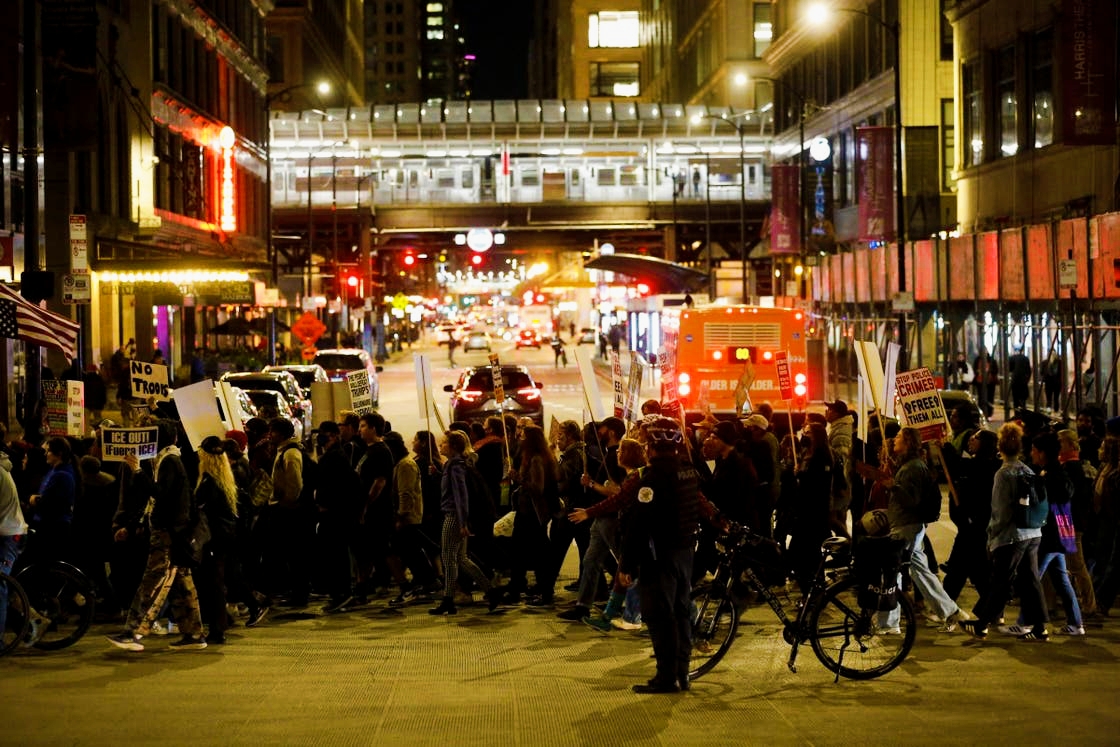Judge Blocks Trump's Decision to Deploy National Guard to Chicago
October 10, 2025178 ViewsRead Time: 4 minutes

Font Size:
16
In a critical legal development deepening the divide between President Donald Trump's administration and local authorities in Illinois, federal judge April Perry in Chicago issued a temporary injunction against the presidential decision to deploy National Guard troops in the city of Chicago and its suburbs.
The judge affirmed in her ruling that the circumstances in Illinois do not rise to the level of "insurrection" that justifies the use of powers under the Insurrection Act of 1807, which allows the president to use federal troops to threaten public order or respond to widespread rebellion.
* The Judge's Argument: No Threat of Insurrection
In the text of the ruling, Judge Perry added that she found no compelling evidence of an actual threat to the safety of the state's order, noting that the Department of Homeland Security did not provide proof of the state or Chicago's inability to maintain security.
She also pointed out that deploying troops in a highly tense urban environment could escalate violence rather than calm it.
* Trump Sends National Guard: Protection or Election Stunt?
President Trump had issued a decision last week to send about 500 National Guard soldiers to the greater Chicago area under the title "Special Security Operation to Protect Federal Property from Illegal Immigrants and Disruptive Elements."
The troops had already arrived in the city's suburbs on Thursday morning, while Illinois authorities rushed to file an urgent lawsuit against the Department of Defense and the Department of Homeland Security, demanding an immediate halt to the decision, which they described as "unconstitutional" and "an overreach of authority."
* The United States at the Heart of Constitutional Controversy
The defense team for Illinois confirmed that the White House's decision is not security-related but rather a political move aimed at bolstering Trump's hardline rhetoric against immigration ahead of the upcoming primary elections.
Local officials considered that deploying the National Guard without the governor's approval constitutes "a serious overreach of the separation of powers," which Judge Perry supported in her ruling, asserting that "the Trump administration is not above the law."
* Government Response: Upholding Federal Authority
For its part, the U.S. administration criticized the judge's decision and described the ruling as "unfortunate," asserting that federal authorities will proceed with an appeal of the ruling before the federal appeals court in Chicago, expecting to hold a preliminary hearing next week.
The Department of Homeland Security confirmed in a statement that the troops sent to Chicago were tasked with securing the buildings of the Immigration and Customs Enforcement agency after receiving "imminent" threats from "extremist groups."
* Political Tension Over Presidential Powers
The decision to send the National Guard to Chicago reflects the escalation in the American political debate over the president's powers to deploy troops within states, a sensitive issue dating back to the events of the "Black Lives Matter" protests in 2020, where Trump threatened to take similar actions in other cities like Portland and Seattle.
The current battle may intensify as the presidential elections approach, with some viewing Trump as attempting to use a strict security policy to boost his popularity among his conservative base.
* What Awaits the Case?
The decision to suspend the deployment of troops is set to last for two weeks, with a new hearing scheduled for October 22 to determine whether to extend the freeze or lift it.
In the meantime, about 500 National Guard soldiers will remain stationed at their bases in Illinois, without executive powers until a final ruling is issued.
Legal experts believe the case could turn into a major constitutional battle between the White House and the states, potentially reaching the U.S. Supreme Court if the administration continues to implement its security policy.